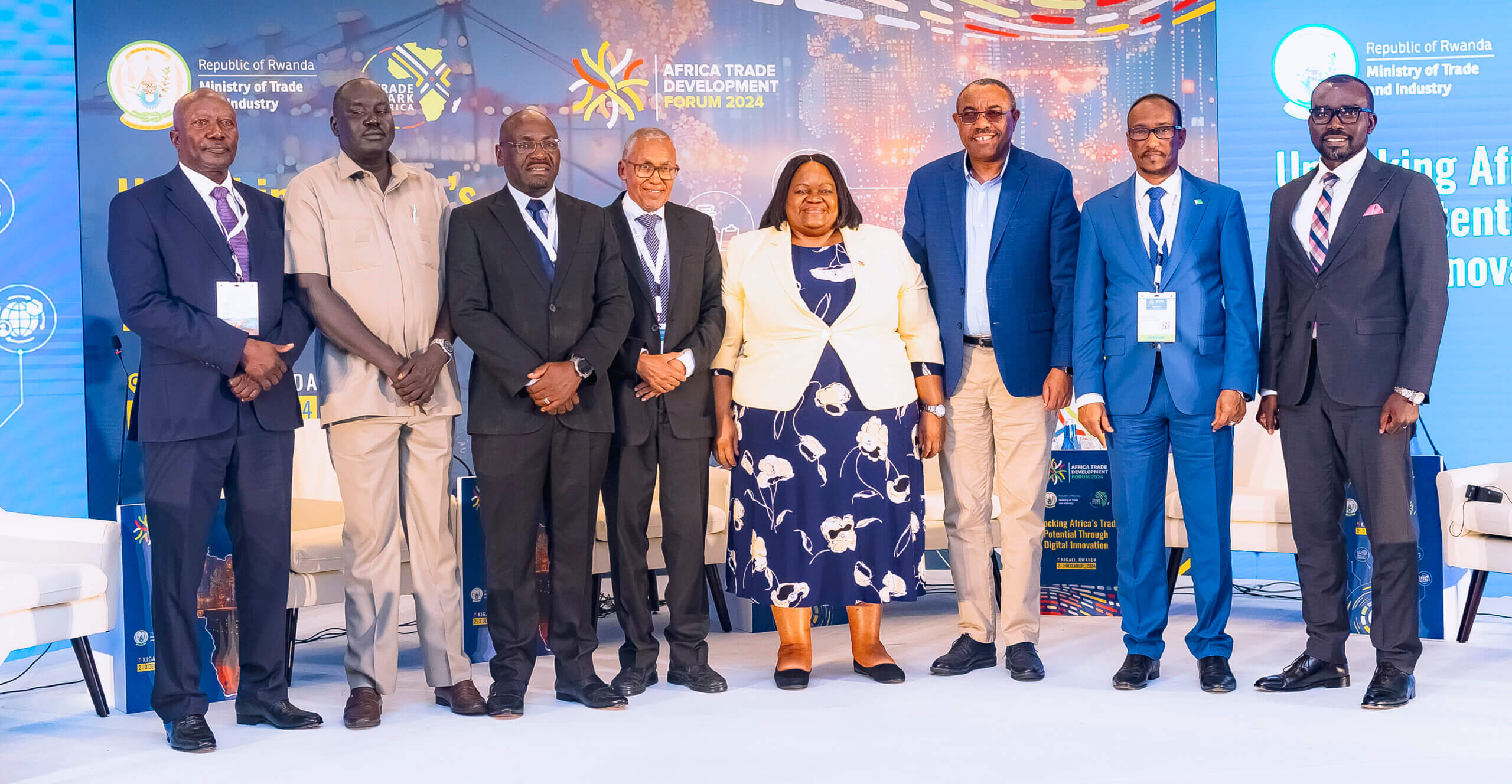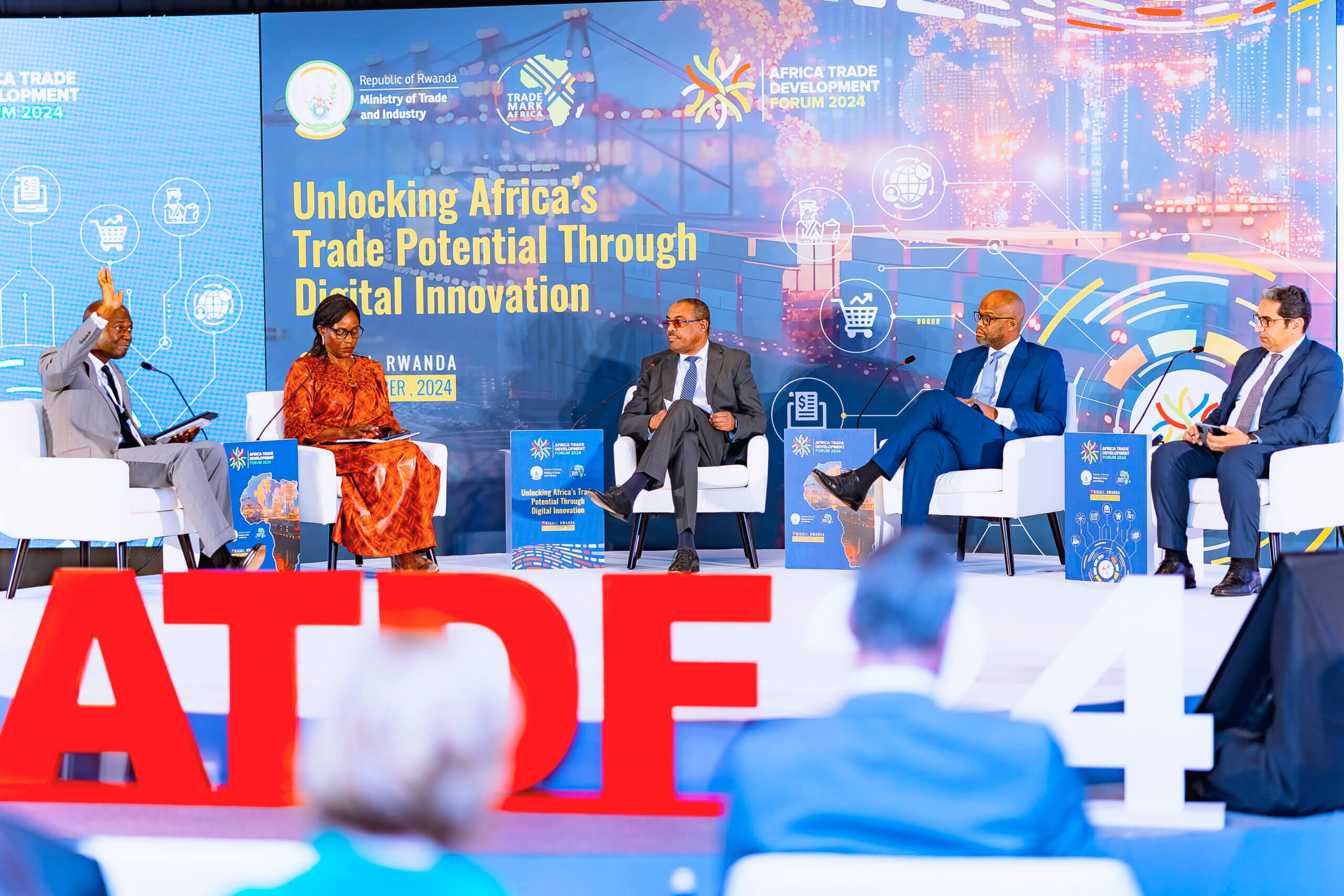Over 300 leaders of business and governments at Africa Trade Development Forum 2024 make unanimous call
Kigali, Rwanda — December 10, 2024 — The Africa Trade Development Forum 2024 wrapped up in Kigali on the 2 to 3 December, with unanimous calls to invest in digital infrastructure for trade, and particularly the move to No-Stop Borders across Africa’s main trade and transport corridors. With a theme focused on “Unlocking Africa’s Trade Potential Through Digital Innovation,” the forum called for rapid advancements in digital trade across the continent under the auspices of the African Continental Free Trade Area Digital trade protocol.
The event was supported and graced by Rwandan Prime Minister Dr. Edouard Ngirente, The Secretary General of Africa Continental Free Trade Agreement (AfCFTA) H.E Wamkele Mene and Rwanda’s Minister of Trade and Industry, Prudence Sebahizi among other government ministers, development partners and leaders of multilateral institutions.

The Africa Trade Development Forum saw experts dive deep into varied discussions from distributed ledger technology for trade to building of smart corridors across Africa’s main trade and transport corridors, so as to facilitate trade and economic growth in Africa. “We’ve started conversations that will lead to tangible improvements in how trade is conducted across our borders. Digitalisation provides us opportunity to integrate MSMEs and small businesses into the digital economy, enabling them to access global markets and drive Africa’s trade agenda forward,” said H.E. Hailemariam Desalegn.
Main discussions from the conference included:
- Smoother border processes through digital infrastructure enhancements across border points and main transport corridors on the continent.
- Need to broaden the use of proven digital systems that have reduced trade costs by up to 80%; such as integrated border management systems, regional electronic cargo tracking systems and modern customs systems.
- The Trade Logistics Information Pipeline (TLIP), a successful pilot between Kenya and UK, was presented as a model for using blockchain to streamline trade documentation.
- With only 30% internet penetration in Africa, there’s a critical need for investments to improve connectivity.
- Increased investments in green data centres and digital trade corridors to enhance Africa’s position in global trade.
- Improved financial systems and blockchain applications were highlighted as essential for reducing trade costs and enhancing transaction efficiency.
Rwanda’s Prime Minister Dr Ngirente shared a positive outlook, stating, “By improving digital connectivity and fostering an enabling environment, we can reduce trade costs by up to 25% and unlock the immense potential of intra-African trade.”
H.E. Wamkele Mene, Secretary-General of AfCFTA, focused on the potential impact on Africa’s youth: “Africa’s challenges are Africa’s opportunities. I believe that the digital innovation and the tools we deploy today will enable and accelerate the integration and opportunities to enable 600 million young Africans to be part of the digital economy.”

Various governments were represented by their Ministers including: Namibia’s Minister of Industrialisation and Trade, Hon Lucia Iipumbu, Somaliland Minister of Finance, Dr Saad Shire, Djibouti’s Minister of Trade and Tourism Hon Mohamed Warsameh Dirie, Tanzania’s Deputy Minister for Industry and Trade Hon Exaud Silaoneka, Uganda’s Minister of State for Cooperatives at the Ministry of Trade, Industry and Cooperatives, Hon Fredick Ngobi Gume and TradeMark Africa’s Board Chair and former Prime Minister of Ethiopia, Hailemariam Desalegn Boshe.
Issued Jointly by the Ministry of Trade Rwanda and TradeMark Africa in Kigali, Rwanda.















